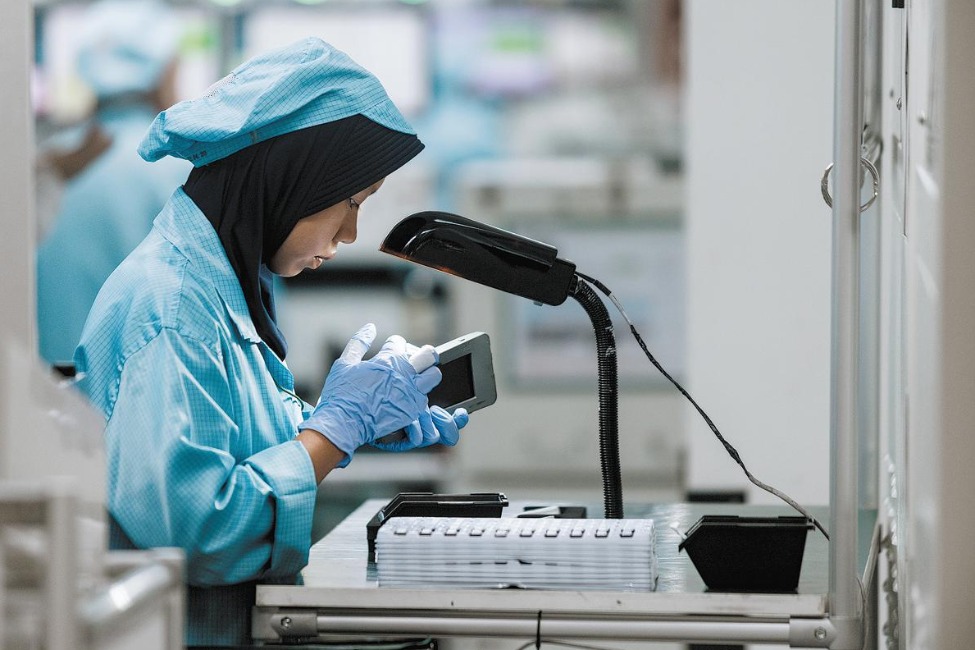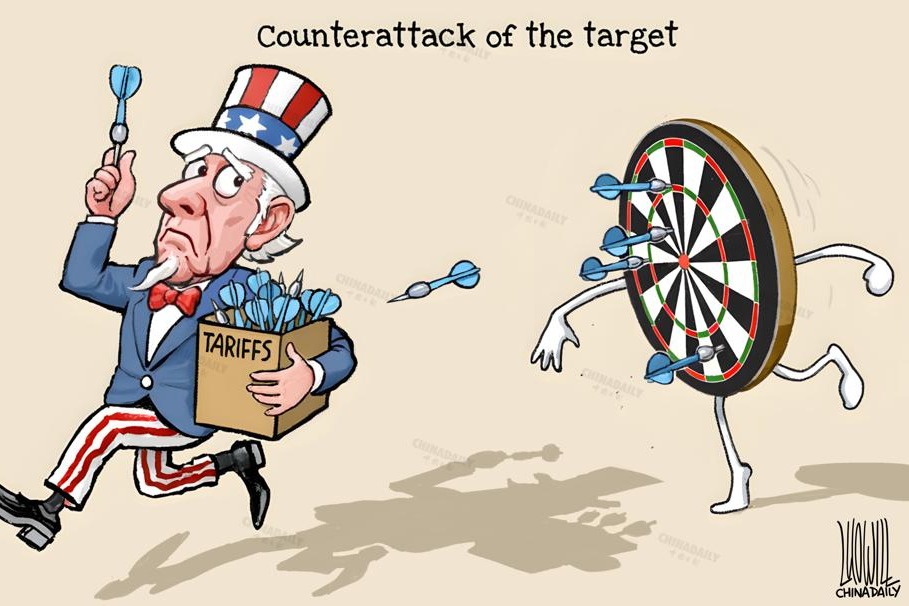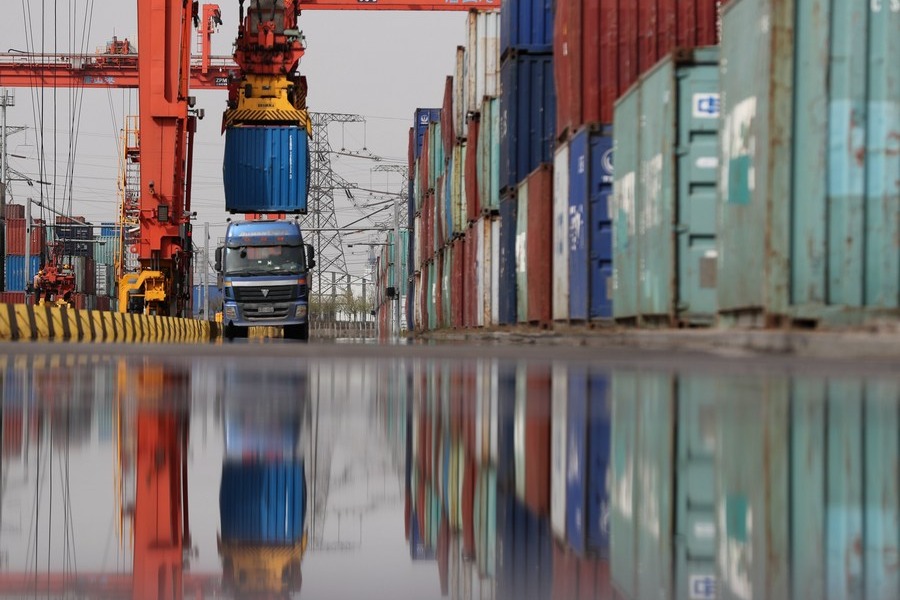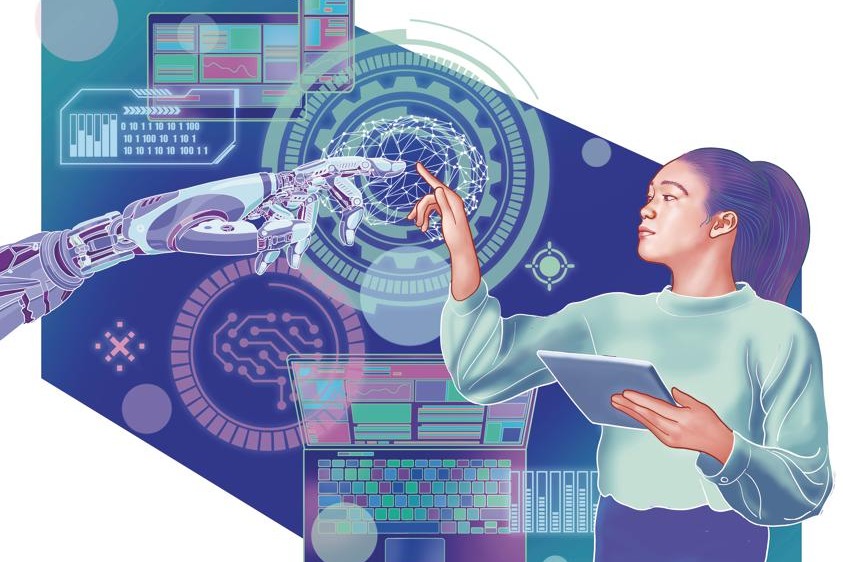BRICS building a better, shared future

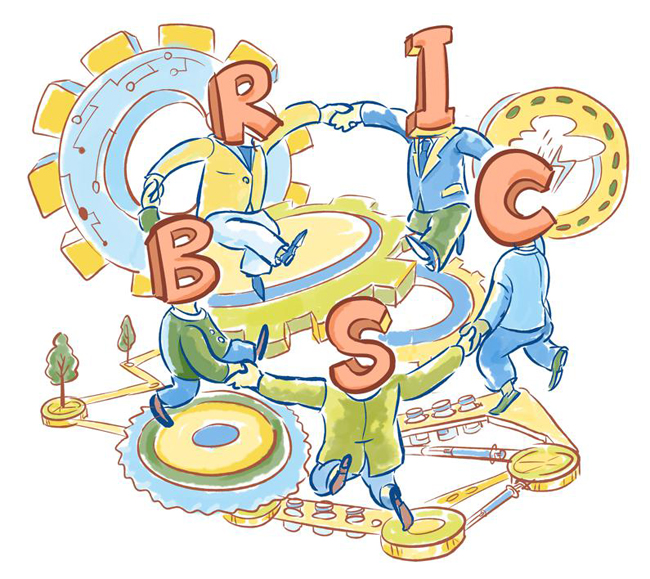
Editor's note: Scholars from Brazil, Russia, India, China and South Africa exchanged opinions on BRICS' role in international relations and global governance at a recent BRICS-themed online forum organized by the Chinese Academy of Social Sciences. Following are excerpts from the views the scholars exchanged at the forum or expressed in interviews with China Daily:
Emerging markets and developing countries
China has been, for some time now, the largest economy in the world measured in purchasing power parity (PPP) terms, which is the correct criterion to compare GDPs across countries. India is the third-largest economy, Russia the sixth largest and Brazil the eighth largest in PPP terms, according to the 2021 data published by the International Monetary Fund. The four giant economies of the world were joined later by South Africa, one of the most important countries in sub-Saharan Africa, to form BRICS.
In the last 14 years, we have achieved quite a lot. We started by focusing on improving the governance of the IMF, and working together in the G20. Remember that in 2008, the year when we started meeting, the G20 was upgraded, and the BRICS members worked together in the IMF and the G20 to help improve the international financial architecture. We managed to obtain some success in terms of reform.
In the IMF, in particular, I recall that BRICS immediately became an important coordination mechanism, second only to the European bloc. So BRICS started off in a big way.
With the IMF, the World Bank and the G20 in existence, BRICS has become all the more necessary. But BRICS was never meant to be anti-United States, anti-Europe, anti-anyone. BRICS members are pro-BRICS, pro-Brazil, pro-Russia, pro-India, pro-China and pro-South Africa. More broadly, the BRICS members are pro-emerging markets and pro-developing countries.
So our intention was always to be a force to promote the shared development of the Global South. This has been in our minds from the very beginning. Of course, we had no presumption that we will guide other countries, and other emerging markets.
Paulo Nogueira Batista Jr., former executive director at the IMF and former vice-president of the BRICS New Development Bank
Aim to help improve global governance
BRICS is a set of three geographically close ancient societies plus two distant, new economies. The consolidation of the group requires the building up of joint initiatives, as a means to maximize the benefits of complementarity, as well as a means to correspond to the basic motivation that has led to the very creation of the group, namely to influence global governance.
This requires the identification of joint purposes, even more so when we are living in a time when global governance is rapidly changing. This makes it challenging for BRICS to even identify what aspects of global governance it aims to influence.
Furthermore, more intense cooperation is needed because it is widely recognized that there is huge potential to foster economic and social development stemming from joint initiatives by the five BRICS members.
BRICS has already expanded the number of members of its New Development Bank, a most welcome movement which is expected to improve the bank's operations. As for increasing the number of BRICS members, the specific reasons for that are less immediate. Before that, the present set of five members should deepen relations, foster joint initiatives, intensify cooperation and clearly identify joint interests.
Renato Baumann, coordinator, International Cooperation and Investments, at the Institute of Applied Economic Research, Brazil
Together for a more just, efficient system
During the last few years, we have seen the total destruction of international law, the trade war launched by the US against China, the financial sanctions against Russia, and the violation of World Trade Organization norms by Western countries. All these show the existing economic system has ceased to work; it has collapsed.
The new economic mode emerging in Asia is a combination of central strategic planning and market competition. The governments in the new economic system are responsible for economic growth and the well-being of the people. The basis for this new economic mode is open, friendly, just relations between countries focused on creating new opportunities for economic growth. For this reason, we see successful economic growth in China, in India, in all the countries which are trying to introduce new economic relations.
The problem, however, is that the major power sources in the world economic system are still in the hands of the Western financial oligarchs. They're trying to use their dominance in the global financial system and the power of their currencies for political purposes. They use their monopoly in the world monetary sphere for their own private needs, in order to prevent the countries from moving toward more just, efficient, open, transparent, rules-based economic cooperation.
But since the BRICS member states are dominant in terms of not only population but also the economy, they could help build the new global financial and economic structure, which will prevent any attempts to use financial instruments for political, selfish purposes.
Sergey Glaziev Yurievich, minister for integration and macroeconomics of the Eurasian Economic Commission and a member of the Russian Academy of Sciences
An alternative to Western groupings
The raison d'être of BRICS coming into existence has been to come up with an alternative to the Western-inspired groupings and institutions that tend to promote their own interests and outlooks at times to the exclusion of the interests of groups and countries that are not beholden to them.
Thus, BRICS has become a useful platform for the member states to exchange views on global politics, governance and the economic environment.
The Ukraine conflict and the COVID-19 pandemic have made it clear that adherence to the United Nations Charter should continue to be the guiding light if international peace and security and the objectives of the UN's Sustainable Developments Goals are to be realized.
It is well known that the effectiveness of BRICS as an alternative to the Western-inspired groupings and institutions has always been under scrutiny. While it can be said that BRICS has made steady progress in its objectives, it still has a long way to go before it can play a leading role for the developing world.
Last year, India hosted the BRICS Summit with a number of new initiatives, which have been detailed in the XIII BRICS Summit Declaration. BRICS has cooperated in providing 1 billion COVID-19 vaccine doses and other medical materials, as well as grants and donations bilaterally, and to international organizations and COVID-19 Vaccines Global Access, or COVAX.
COVID-19 has also had a huge impact on economies, which is still being felt. Although the scale of the impact on the BRICS' economies has been different, it could be long lasting.
The BRICS members have largely taken a neutral stance on the Russian-Ukraine conflict. They have their own nuanced positions on the ongoing imbroglio. They support peaceful resolution of the conflict and cessation of hostilities. And they have largely resisted the attempts by the US and other Western countries to accede to their narrative, thereby exhibiting a degree of unity in their individual approaches.
Vinod Anand, a senior fellow at the Vivekananda International Foundation, New Delhi, India
Building a partnership for high-quality development
In the face of new challenges posed by the COVID-19 pandemic, BRICS members, as representatives of emerging markets and developing countries, should fulfill their responsibilities by working together to expeditiously realize the UN's 2030 Agenda for Sustainable Development.
First, BRICS must accord priority to development, and its members should uphold the core values and basic principles of the multilateral trading system, promote trade and investment liberalization, take measures to help maintain the security and stability of the global industry and supply chains, and work to make economic globalization more open, inclusive, balanced and beneficial to all.
BRICS needs to earnestly implement the "Strategy for BRICS Economic Partnership 2025", and deepen cooperation in such areas as trade, agriculture, industry, energy and infrastructure, and boost global economic recovery by bolstering their own development.
Second, the BRICS members should pursue common development, making sure the fruits of development benefit the people of all countries. They should focus on the urgent needs of developing countries, enhance cooperation in key areas such as poverty reduction, food security, financing for development and industrialization through "BRICS Plus", in a bid to address the unbalanced and insufficient global development problem.
Third, the BRICS members should adopt an innovation-driven approach and jointly build a partnership for high-quality development. They should take measures to deeply integrate science and technology with the economy, and remove barriers restricting the flow of innovation factors such as knowledge, technology and talents.
In particular, the five members should focus on cooperation in emerging industries such as intelligent manufacturing, digital economy, green energy and biomedicine, and promote innovation in production, organization, technology and service models, and champion new technologies and new industrial cooperation formats within BRICS, in order to boost high-quality economic development.
Jin Xin, secretary-general of the China Council of BRICS Think Tanks Cooperation
Developing countries must have a bigger say
The COVID-19 pandemic is yet to be contained around the world, and the road to global economic recovery remains bumpy and tortuous. Along with this, the complex geopolitical conflicts have pushed the world into a new period of turbulence and change. As a result, the BRICS members, as representatives of emerging and developing economies, need to strengthen solidarity and cooperation more than ever.
The BRICS members need to reach a consensus on global development and security, so as to stabilize, and inject positive energy into, the world economy. Security is a prerequisite for economic development, and development is the guarantee for security. So the five members should strengthen political mutual trust and security cooperation, communicate and coordinate closely on major international and regional issues, and respect each other's core interests and major concerns. They should also deepen cooperation and integrate their interests with those of other developing countries through "BRICS Plus".
And they should work more closely to bolster the global fight against COVID-19 because the pandemic situation around the world remains serious and the novel coronavirus continues to mutate. Jointly fighting the pandemic and promoting economic recovery should be the priority of all the countries. The BRICS members have made good progress in joint vaccine research and development, cooperative production, mutual recognition of standards, and sharing of information on the pandemic, thus laying a solid foundation for global economic recovery.
Also, BRICS should continue to adhere to the principle of extensive consultation, joint contribution and shared benefits, promote multilateralism, and create an open and inclusive environment for cooperation.
The five members should not only strengthen communication and coordination within BRICS, and win for BRICS a greater say in matters concerning the global economy, public health, climate change and digital governance, but also unite the developing countries to make sure the voice of the Global South is heard in international organizations and multilateral forums such as the G20, the WTO and the Asia-Pacific Economic Cooperation. This will help developing countries gain the right to set the agenda and formulate the rules on international issues, and promote the development of the global governance system in a more equitable and rational direction.
Wang Lei, director-general of the Bureau of International Cooperation, Chinese Academy of Social Sciences
Building blocks toward a plural, diverse world
Since everything comes from something, global governance, too, has a historical foundation that bears imprints and ideas of universalism and nuanced colonialism. The shaping of global governance is mostly a historical product of conquest and hegemony of the West, competing interests and a battle for influence that, if left unchallenged, will continue to define most global realities through agenda setting, and the control of knowledge production and dissemination-in short, the hegemony of epistemology.
In this battle of influence in a space occupied by various state and non-state actors, histories are written and re-written to advance certain agendas and attain dominance. The scientific networks, lobby groups all represent others' interests or those of their funders, and continue to shape global governance that perpetuates universalism and disregards the existence of other realities. This sustains neo-colonialism.
In a world where global governance has often represented the interests of what is referred to as powerful nations or countries, the formation of BRICS is a building bloc toward a "pluriversal" (plural and diverse) world that accepts diversity yet works to build a community with a shared future for mankind.
Given the independence of most countries from the political and ideological clutches of the colonial masters and the need to transform the West-dominated system of global governance, the 21st century saw a shift toward a multipolar world that is based on a more equitable and "pluriversal" world order with multilateralism at its core.
This shift has seen the emergence of BRICS as a notable player in multipolarity and global governance which seeks to reshape global governance since most states that constitute it were denied a place for articulation in the hierarchy of global powers.
BRICS as a bloc and its members as individual states have made great traction in global governance and the building of a "pluriversal" world where they challenge the Western concept of universality.
Individually, BRICS states bring economic and political clout to international relations at a time when the old West-centric world order is under pressure to transform. One of the notable successes of BRICS is the establishment of the New Development Bank which gives developing countries access to development finance.
The NDB's work complements the efforts of multilateral and regional financial institutions toward global growth and development. The NDB states that "our work is centered" on "maximizing the impact of development in a fast, flexible and efficient manner". This flexibility to a country's specific conditions is important in a "pluriversal" world to ensure equitable development for all.
Further demonstrating its commitment to facilitate development in the Global South, the 2022 Meeting of the BRICS Foreign Ministers resolved to promote "discussions among BRICS members on BRICS's expansion process and promoting BRICS Outreach and BRICS Plus Cooperation".
This expansion will provide more options for developing countries and emerging markets to choose institutions they would like to work with and reduce reliance on Western institutions that are often inflexible.
BRICS is helping develop this "pluriverse", by strengthening, promoting and protecting multilateralism that takes into account the reality of all humankind in the "pluriverse".
Busani Ngcaweni, principal of the National School of Government, South Africa
The views don't necessarily represent those of China Daily.



















